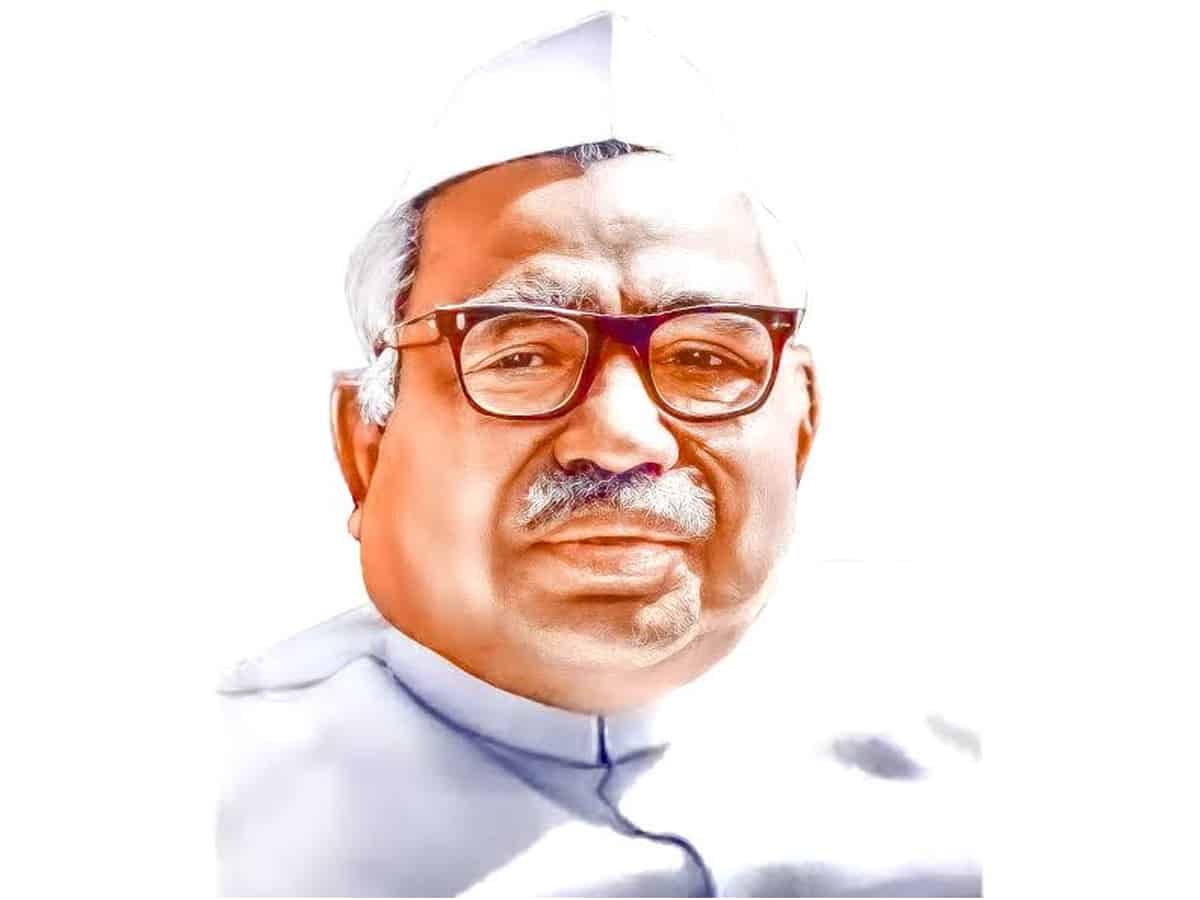Babu Jagjivan Ram: A Visionary & Karmayogi

- Dr. Shashi Kumar Singh, Ph.D.,D.Litt.
Babu Jagjivan Ram, former Deputy Prime Minister, Government of India, was born on April 5, 1908, in Chandwa village of Arrah (present-day Bhojpur district), the headquarters of the then Shahabad district of Bihar province. His father Sant Shri Shobhi Ram and mother Basanti Devi were saintly themselves. He was enrolled in the Pathshala(primary school) of Chandwa village at the age of six, on the auspicious day of Basant Panchami in 1914. In the same year, his father left for heavenly abode. Babu Jagjivan Ram completed his primary and secondary education at Mahajani School and Town School, Arrah. He became the delegate in the 18th session of the students’ conference in Arrah in 1925, where he delivered the welcome speech for Pandit Madan Mohan Malviya in a way that impressed Malviya Ji, greatly so, that he invited Jagjivan Babu to Banaras Hindu University for higher studies.
Babu Jagjivan Ram enrolled himself in Banaras Hindu University, Banaras, in July 1926, after passing his matriculation examination with the first class. After passing the ISC examination in 1928, he passed the BSC examination at the University of Calcutta; after which he plunged into the freedom movement and came in contact with Mahatma Gandhi. Mahatma Gandhi was impressed by Jagjivan’s contribution to the freedom movement and honoured Babu Jagjivan Ram with the words ‘Agni meintapaasona’ (A refined one).Under the Indian Act of 1935, elections were held in 1937, in which the Congress won in Bihar and eight other provinces. The British rulers had put all the powers in the hands of the British governors of the provinces, so the Congress decided not to form the government in these provinces. The British passed that ordeal as expected by rejecting Yunus’ offer in Bihar. Gandhi Ji’s magazine ‘Harijan’, praised Babu Jagjivan Ram thus - “This man from the Dalit class has shown how high ideals can be maintained even while living in poverty. Will the so-called upper caste Hindus learn anything from the conduct of this great servant of India?”
The parliamentary life of Babu Jagjivan Ram is a world record. In the year 1932, he became a member of the Arrah municipality. During the independence movement in 1936, he became a member of the Bihar Legislative Council. In December1937, he was elected unopposed from East Central Shahabad rural area in the Bihar Legislative Assembly from the Depressed Classes Union. Along with this, he worked for making the members of the 14 Dalit class union of the reserved category victorious, and that too unopposed. In the elections of 1946, elected unopposed from the Congress, he became the Labour Minister in the Interim Government of the Center. In this interim government formed on the invitation of Viceroy Lord Wavell, there were only two ministers from Bihar - Dr. Rajendra Prasad and Babu Jagjivan Ram.
Babu Jagjivan Ram was a sharp and energetic politician. The distinction of being elected MP from the same constituency (Sasaram) for eight consecutive terms (1stto 8thLok Sabha, 1952-1984) proves his talent and work efficiency. The public was always stunned by his clear vision and found that he was such a karma yogi who was completely devoted to the welfare of the masse; Dalits in particular.
His tenure of half a century from 1936 to 1986 is perhaps a world record in parliamentary history. He started his political career as a nominated member of the Bihar Legislative Council in 1936 and rose to the post of Deputy Prime Minister in 1979. He remained a resplendent force in the national political scene till his death in July 1986. While working with four Prime Ministers as Deputy Prime Minister and Minister of various departments, he did extraordinary service to the general public. He had an amazing ability to understand the situation and take quick decisions. Some of the programmes for the upliftment of the common man started by him have proved to be milestones in achieving the goal cherished by Bapu ‘Tears should be wiped from every eye.’ Despite his distinguished positions and successes, he was a very humble and grounded politician.
What seems to be the most significant of Jagjivan Babu’s contributions is that he had a vision of a new social order, which plays an important role in shaping India’s fortunes. Babu Jagjivan Ram ushered in a new era of protection, equality and empowerment of the Depressed Classes. His life was a positive statement of the identity of the backward. His credibility, dedication and political ability instilled confidence and infused enthusiasm among the downtrodden and backward classes. His achievements can be seen as a remarkable effort towards a new social order in India. On July 6, 1986, this great man died in Dr. Ram Manohar Lohia Hospital in New Delhi. On July 7, 1986, the cremation took place in his native Chandwa (Arrah, Bihar). It was attended by many dignitaries of the country including the then Prime Minister of India, Shri Rajiv Gandhi.
(The author is the Chairman of the Vichar Vibhag of the Bihar PCC)







